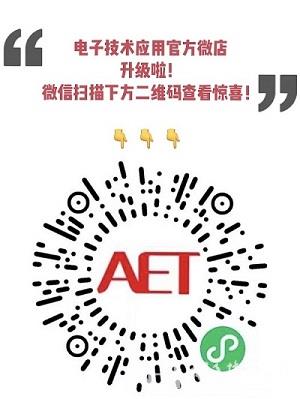基于DBN-BP深度算法的熱軋板帶橫斷面預測
2022年電子技術應用第11期
高山鳳,劉美紅,范秋霞
山西大學 自動化與軟件學院,山西 太原030006
摘要: 隨著各工業領域的快速發展,市場對薄規格、高強度板帶產品的需求快速增加。而熱軋板帶橫斷面形狀是熱軋板帶產品質量的主要評價指標。基于數據挖掘技術,對軋機數據庫中的數據進行分析與處理,其中數據挖掘技術采用深度置信網絡(Deep Belief Neural,DBN)和BP(Back Propagation)算法相結合,構建板帶橫向厚度分布的預測模型。DBN-BP算法由多個限制玻爾茲曼網絡(Restricted Botlzmann Machine,RBM)逐層堆疊而成,并使用無監督的逐層訓練的方式得到網絡的權值矩陣和偏置供BP算法使用,而BP算法通過誤差反向傳播的方式對整個網絡進行微調。該方法克服了BP算法因隨機初始化權值參數而陷入局部最優和訓練時間長的缺點。通過與BP算法相比較可知,采用DBN-BP方法預測終軋道次穩定軋制時板帶中點厚度誤差在±5.6 μm范圍內的概率可達95%;而BP算法的預測誤差范圍為±11 μm。并且通過對板帶橫斷面形狀的預測結果分析可知,相比于BP算法,DBN-BP深度學習方法對于板帶邊部厚度的預測更具有優勢。
中圖分類號: TP183
文獻標識碼: ADOI:10.16157/j.issn.0258-7998.223210
中文引用格式: 高山鳳,劉美紅,范秋霞. 基于DBN-BP深度算法的熱軋板帶橫斷面預測[J].電子技術應用,2022,48(11):46-50,56.
英文引用格式: Gao Shanfeng,Liu Meihong,Fan Qiuxia. Cross sectional shape prediction of hot rolled strip based on DBN-BP deep neural network[J]. Application of Electronic Technique,2022,48(11):46-50,56.
文獻標識碼: ADOI:10.16157/j.issn.0258-7998.223210
中文引用格式: 高山鳳,劉美紅,范秋霞. 基于DBN-BP深度算法的熱軋板帶橫斷面預測[J].電子技術應用,2022,48(11):46-50,56.
英文引用格式: Gao Shanfeng,Liu Meihong,Fan Qiuxia. Cross sectional shape prediction of hot rolled strip based on DBN-BP deep neural network[J]. Application of Electronic Technique,2022,48(11):46-50,56.
Cross sectional shape prediction of hot rolled strip based on DBN-BP deep neural network
Gao Shanfeng,Liu Meihong,Fan Qiuxia
School of Automation and Software Engineering,Shanxi University,Taiyuan 030006,China
Abstract: With the rapid development of various industrial fields, the market demand for thin specifications, high strength strip products increases rapidly. The cross-section shape of hot rolled strip is the main evaluation index of hot rolled strip product quality. Based on data mining technology, the data in the mill database are analyzed and processed. The data mining technology combines deep belief neural network(DBN) and back propagation(BP) neural network algorithms to construct a prediction model of strip thickness distribution. The DBN-BP algorithm is composed of several restricted Botlzmann machines(RBM) stacked layer by layer, and the weight matrix and bias of the network are obtained by unsupervised layer-by-layer training method for the BP network, while the BP neural network fine-tunes the whole network by means of error back propagation. This method overcomes the disadvantages of BP network falling into local optimum due to random initialization of weight parameters and long training time. Compared with the BP algorithm, the probability of predicting the midpoint thickness error is within ±5.6 μm by the DBN-BP method is 95%, while the prediction error of BP algorithm is within ±11 μm. Through the analysis of the prediction results of the cross-section shape of the strip, it can be seen that the DBN-BP deep learning method has more advantages than the BP algorithm in predicting the edge thickness of the strip.
Key words : hot rolling;deep learning;strip thickness prediction
0 引言
在鋼鐵及有色金屬行業,軋制是目前最重要的板帶材產品成材工序之一。隨著市場對熱軋產品以及冷軋產品質量要求的不斷提高,熱軋板帶橫斷面形狀越來越受到重視,其主要的評價指標有凸度、楔形、邊降和局部高點等。同時熱軋板帶是冷軋板帶的材料來源,現有研究表明熱軋板帶對冷軋板形的質量有著重要影響[1]。熱軋工序常常需要根據冷軋需求控制板形,板形的質量控制已從冷軋的控制延伸到軋制全流程控制。
由于軋制過程中變形區金屬發生三維塑性變形,存在明顯的金屬橫向流動現象[2],造成板帶橫斷面形狀難以準確預測。目前對板帶橫斷面形狀的研究主要是集中在板帶凸度和邊部減薄量的研究,研究方法有數學模型[3-5]、有限元[6-10]、軋機設備研發[11]和機器學習算法[12-14]等。雖然板帶凸度能夠用來粗略說明軋機對軋件橫斷面的改變能力,并可用來分析軋機對于板帶邊浪和中浪的控制能力,但對于具有復雜斷面形狀變化的軋件是無法單獨使用板帶凸度進行板形評價的[3]。此外,生產中為了保證板帶的邊部質量,往往必須將板帶邊部減薄部分裁切掉,而減小板帶切邊量是降本增效有效的方法[15-17]。
本文詳細內容請下載:http://www.rjjo.cn/resource/share/2000005003。
作者信息:
高山鳳,劉美紅,范秋霞
(山西大學 自動化與軟件學院,山西 太原030006)

此內容為AET網站原創,未經授權禁止轉載。

